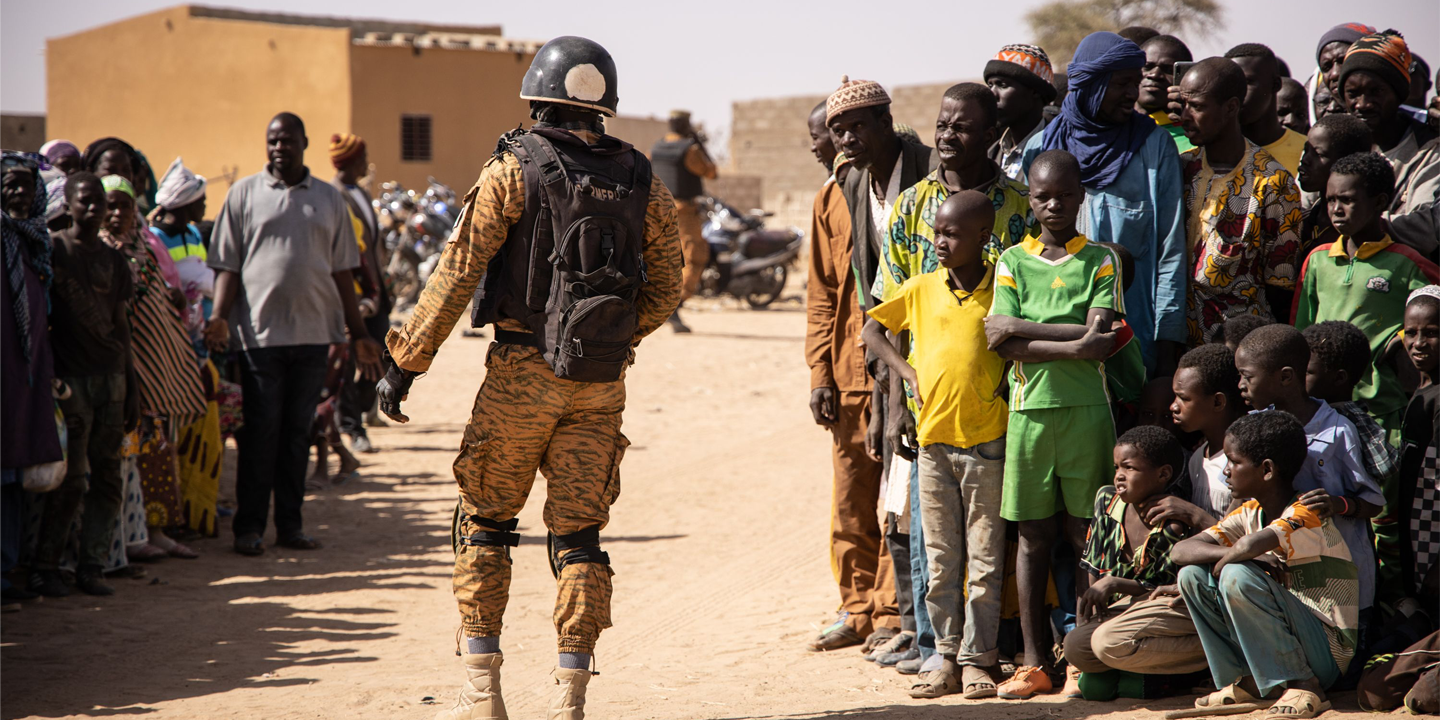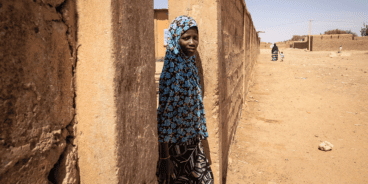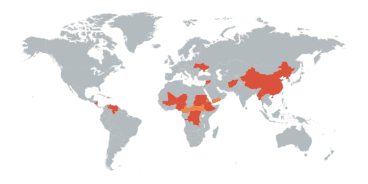

Atrocity Alert No. 313: Mali and Burkina Faso, Cameroon and World Humanitarian Day
Atrocity Alert is a weekly publication by the Global Centre for the Responsibility to Protect highlighting situations where populations are at risk of, or are enduring, mass atrocity crimes.
VIOLENCE AGAINST CIVILIANS CONTINUES TO RISE IN MALI AND BURKINA FASO
Since the start of 2022, attacks by armed Islamist groups in Mali and Burkina Faso as well as human rights violations and abuses by national defense and security forces have significantly increased. Populations in Mali and Burkina Faso have faced months of escalating violence, with nearly 2,000 civilians killed so far this year. The actual figure is likely higher given the lack of reliable media coverage, the remote and rural locations of the attacks and the fear among populations about speaking out. Despite this, 2022 is on track to be the deadliest year since the crisis began in the Central Sahel. The UN peacekeeping operation in Mali documented 1,304 human rights violations and abuses between 1 January to 30 June, representing a 47 percent increase from the previous six-month period.
In response to the growing and persistent threat of armed Islamist groups, the Burkinabé and Malian defense and security forces have scaled up their counterterrorism operations. However, these forces have routinely perpetrated grave human rights abuses and violations against civilians – primarily members of the Fulani, or Peuhl, ethnic group – that they suspect of supporting armed Islamist groups. Following a visit to the country in August, the UN Independent Expert on the human rights situation in Mali, Alioune Tine, stated, “I was particularly shocked to see with my own eyes victims with visible signs on their bodies of atrocious, cruel and barbaric torture they had suffered at the hands of Malian security forces. Their testimonies were unbearable.”
In neighboring Burkina Faso, two human rights organizations recently reported that more than 40 people – nearly all Fulani – were killed by presumed soldiers from the Defense and Security Forces (FDS). According to eyewitness accounts, the victims were reportedly kidnapped in the northern village of Taffogo then summarily executed on the road to Bouroum. The Observatory of Human Dignity said that the FDS had “resumed the anti-terrorist fight by simply exterminating villages occupied by a certain community.” The government spokesman, Lionel Bilgo, rejected the allegations, stating that the army had launched an investigation.
The Burkinabé and Malian defense and security forces must carry out all military operations in strict compliance with international humanitarian and human rights law, ensuring that counterterrorism objectives do not negate universal human rights protections. The Burkinabé and Malian transitional authorities should guarantee that victims receive just and effective remedies. Ending the culture of impunity for abuses by state forces may play a crucial role in countering the spread of violent extremism.
CIVILIANS CONTINUE TO FACE WIDESPREAD VIOLENCE IN ANGLOPHONE CAMEROON
Populations in the Anglophone north-west and south-west regions of Cameroon remain at risk of atrocities amidst ongoing clashes between government forces and armed separatist groups. On 11 August Human Rights Watch reported that between 24 April and 12 June 2022 at least 10 people were summarily killed by Cameroonian security forces during military operations against armed separatists groups. During the operations soldiers burned homes and destroyed and looted health facilities and shops. Armed separatists perpetrated grave human rights abuses during the same period, including killing and kidnapping civilians. Separatists have also continued their assault on education, attacking students, teachers and schools. Human Rights Watch documented that at least 33 students and five teachers were kidnapped by armed separatists since January.
Populations in Cameroon’s Anglophone regions have faced widespread violence since tensions over cultural rights and marginalization of Anglophone populations escalated in October 2016. In the resulting clashes, government forces and armed separatist groups have perpetrated grave violations and abuses that may amount to atrocities, including extrajudicial killings, kidnappings and torture. Since the crisis began, more than 6,000 civilians have been killed and at least 666,000 displaced. Few perpetrators have been held accountable.
Since 2021 the government has intensified its attacks against armed separatist strongholds in attempts to end the conflict. During military operations, government forces have routinely targeted civilian populations for their alleged cooperation with separatist groups. Armed separatists have retaliated by using more deadly weapons, including improvised explosive devices and anti-tank rocket launchers, putting civilians at increased risk. Separatist groups have also expanded their sources of revenue through kidnapping and extortion in the north-west and south-west. Civilians are also at risk of targeted attacks by armed separatists for their suspected collaboration with the government.
Juliette Paauwe, Cameroon Expert at the Global Centre for the Responsibility to Protect, said that, “despite escalating violence, the international community has failed to adequately respond to years of deadly conflict in Cameroon. While long overdue, the African Union (AU) and the UN Security Council (UNSC) must help establish a comprehensive ceasefire to address the growing atrocity risks faced by civilian populations in the Anglophone regions.” The AU and UNSC should also facilitate an inclusive dialogue between the government, separatist groups and Anglophone communities, mediated by a neutral player on neutral territory. Security forces must end all extrajudicial killings of unarmed civilians and ensure that the human rights of all Cameroonians are equally protected, regardless of cultural identity. Armed separatist groups must also halt attacks on civilians and civilian infrastructure.
COMMEMORATION OF WORLD HUMANITARIAN DAY, 19 AUGUST 2022
This Friday, 19 August, marks World Humanitarian Day, which pays tribute to humanitarian workers who risk their lives while assisting the most vulnerable populations in the world. The theme of this year’s World Humanitarian Day is #ItTakesAVillage, focusing on how aid workers come together in a collective effort to alleviate extreme need. Ahead of the commemoration, Martin Griffiths, the UN Emergency Relief Coordinator and Under-Secretary-General for Humanitarian Affairs, said, “humanitarian needs are at an all-time high, and aid workers are working in ever more dangerous environments.”
The Aid Worker Security Database (AWSD) documented 268 attacks on humanitarian workers last year that resulted in 203 aid workers seriously injured, 117 kidnapped and 141 killed – the highest number of fatalities recorded since 2013. Small weapons and shooting incidents caused the most fatalities, with airstrikes and shelling being the second highest cause of death. AWSD reported that this type of casualty is expected to dramatically increase in 2022 due to indiscriminate rocket attacks and shelling in Ukraine that continues to threaten civilians and aid workers.
South Sudan remained at the top of the ten “most violent contexts” for aid workers, followed by Afghanistan, Syria, Ethiopia, Mali, Myanmar (Burma), Democratic Republic of the Congo, Central African Republic, Cameroon and Nigeria. Christine Caldera, Research Analyst at the Global Centre for the Responsibility to Protect, said, “it is no coincidence that the most violent contexts for aid workers are also situations where we witness widespread disregard for international law and the perpetration of mass atrocities.” The denial of humanitarian access to civilians and deliberate attacks against humanitarian workers may constitute a war crime or crime against humanity under International Humanitarian Law (IHL) and are often linked to attempts to perpetrate other mass atrocity crimes against vulnerable populations.
For the first time in 24 years, Ethiopia was listed in AWSD’s top five “highest incident contexts,” where fighting and widespread violations of IHL, including the systematic destruction of food, water and healthcare systems, as well as the routine blocking, attacking and looting of humanitarian convoys, have caused a humanitarian catastrophe to unfold in the Afar, Amhara and Tigray regions. A months-long “de facto aid blockade” imposed by the federal government on Tigray prevented the delivery of essential supplies to starving and vulnerable civilians. In 2021 UN officials asserted that access to food was being used as a weapon of war in Ethiopia.
Vital humanitarian aid can mean the difference between survival and death for millions of people around the world. With at least 100 million people forcibly displaced by conflict, persecution and atrocities, the work of humanitarian organizations has never been more important. Civilians caught in conflict and those that care for them must be protected.
Related Content


Atrocity Alert No. 398: Central Sahel, Ukraine and Democratic Republic of the Congo
